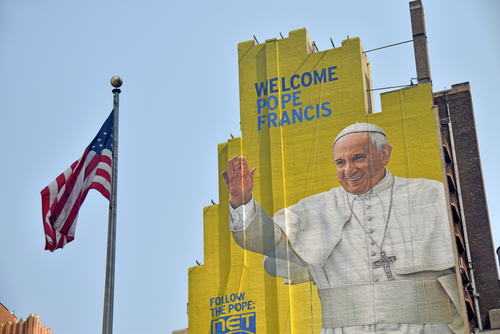
Pope Francisco comes to Mexico for the first time this week. Will it be a “Meet the new boss—same as the old boss” experience? In the 1980s, John Paul II shamelessly performed a private mass for the family of then-president José Luis Portillo. (“Mexico deserves a mass in the presidential residence,” was that pope’s logic.) The current pope comes with a more populist stance, but, according to Vatican spokesperson Federico Lombardi, refuses to meet with parents of the 43 disappeared education students—as he has avoided doing since a group of mothers went to see him in Philadelphia in September—or with victims of pederast priests. In both cases, church authorities offer tickets to the mass the pope will officiate in Ciudad Juárez, which is about a 30-hour drive from the state of Guerrero.
Epifanio Álvarez, father of one of the missing students, responded that if the pope “were really different and wanted to do something for us, he would have made some kind of statement a long time ago.” Whether seeking papal intervention is the best strategy to fight state violence in Mexico is open to debate, but what cannot be disputed is that this pope has scheduled time to meet the family of the neo-liberal mayor of Mexico City—Miguel Ángel Mancera, friend of violent police officials and of real estate vultures who send thousands of poor people per year to live on the streets or to leave the city—but not to meet with families of the worst state-committed atrocity in Mexico’s recent history. (Alexandro Solalinde, a priest who is widely respected for his defense of Central American immigrants who pass through Mexico, believes that, in spite of the announcements to the contrary, the pope will meet with the families of the 43 students.)
Francisco gave an interview to the Mexican state news agency Notimex and to the Vatican’s television station in which he said that the “Mexico of violence, of corruption, of drug trafficking, of cartels, is not the Mexico that our mother loves” and added that he planned to exhort Mexicans to fight against these ills.
Juárez is one of several besieged Mexican cities that the pontiff will visit between February 13 and 17. Though he desires to be seen as less ostentatious than previous popes, will use five different “Popemobiles”, and his trip will be paid for by tens of millions of public dollars for logistical expenses and has triggered millions more in advertising by firms wishing to be associated, if not with this renegade pope, with the image of the church and of the papacy. This, as budget cuts that will target education and social programs were announced this week as the peso continues to devalue and oil prices plunge.
Ciudad Juárez is well-known as the epicenter of the phenomenon of extreme violence against women that has occurred in Latin America in the past 20 years. What is not so well-known is that, despite public relations campaigns that have covered up the violence since Enrique Peña Nieto assumed the presidency in 2012, hundreds of young women have been kidnapped in the past year in Juárez and, though not dismembered and killed as often as in the past, are forced into prostitution in strip bars a few blocks from the bridge to El Paso, as documented in several recent articles by San Juana Martínez in the newspaper La Jornada. Does Francisco have the desire, or the moral authority, to denounce this, when he has had at best a tepid response to a similarly outrageous sexual abuse scandal in his own institution?